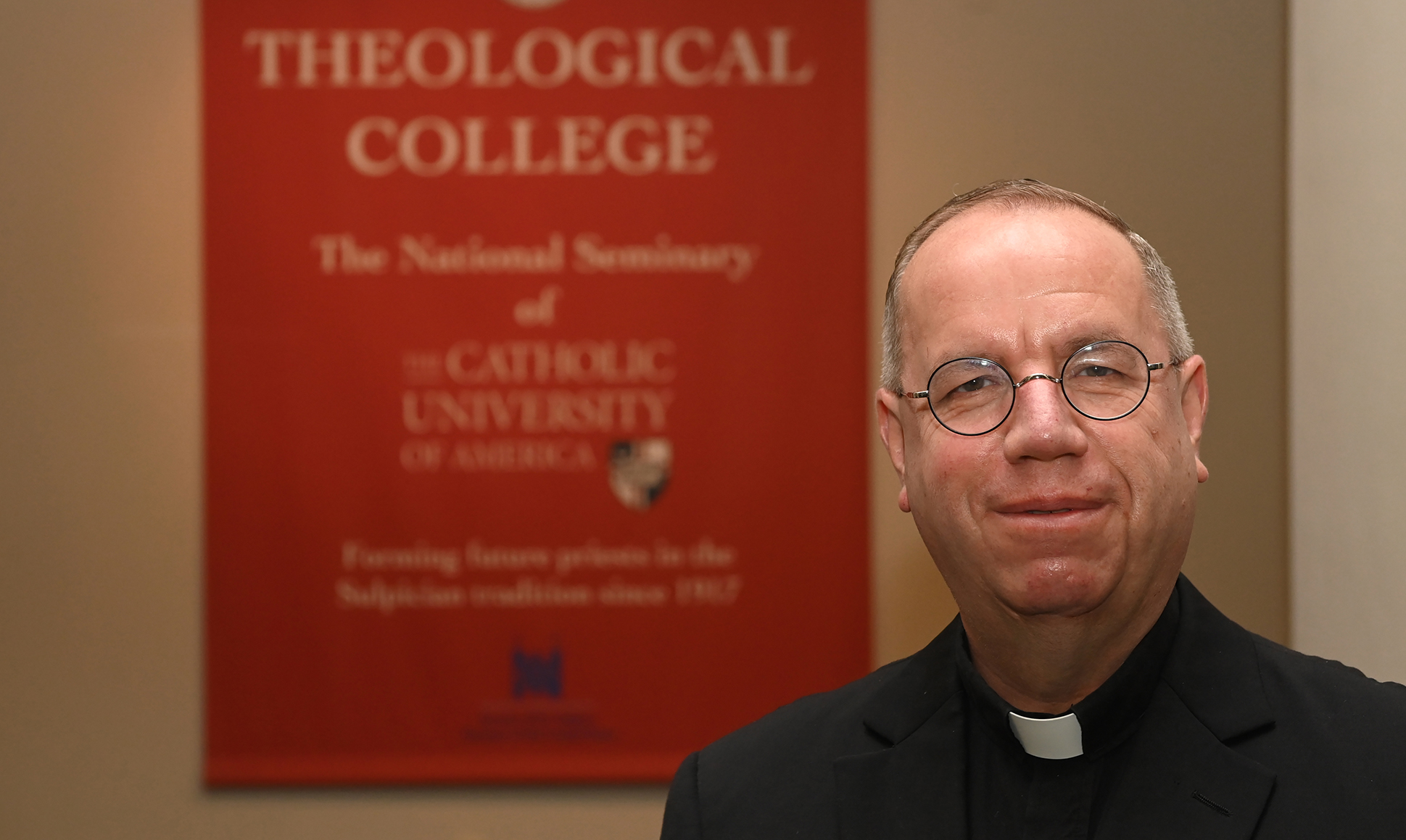
Being the Presence of Christ in the World
Dear Alumni and Friends:
I am writing this reflection on the eve of my Silver Jubilee of Priestly Ordination. So much has changed in the world, the Church, and the nation since Archbishop Thomas Kelly laid his hands upon my head. I entered Holy Orders before the tragic events of 9/11. The sexual abuse scandals had yet to see the full light of day. Global pandemics were the stuff of science fiction and not something any of us thought we would actually encounter. Looking back, I wonder if my seminary prepared me adequately for these challenges. A more important question, however, is how is Theological College forming men to meet the challenges of the future? What can a seminary do to train men for the unknown?
Fr. Olier and the early Sulpicians recognized that no seminary can anticipate the specific situations that a new priest will face. Life is full of contingencies that restrict the prescience of even the wisest formators. What the seminary can and must do is create an environment in which men can hear and respond to the voice of Christ and surrender to the work of the Holy Spirit. The four dimensions of formation speak to the diverse ways in which grace must permeate the life of a man in such a way that his very being is open to configuration of Christ the Priest. Through rigorous study, intense prayer, addressing the challenges of human growth, and intense pastoral encounters, we believe the men of Theological College will be the effective presence of Christ in whatever circumstances they face.
The very first words of our new Holy Father, Pope Leo XIV, were words of peace. This was an important reminder that all Christians have the call to be a peaceful presence in an often turbulent world. It is crucial that priests must be, above all, instruments and teachers of the peace of Christ. While the future cannot be determined with anything like certainty, it is clear that the world will always require the ministrations of those called to serve the Prince of Peace.
I would like to express my deepest gratitude to all of those who help Theological College in this all important mission. As always, let us remember each other in prayer and commit ourselves to being authentic signs of peace in the world.
Blessings,
![]()
Rev. Gladstone (Bud) Stevens, P.S.S.
Rector
